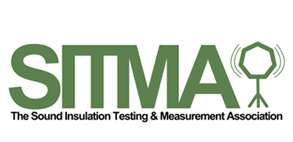Offices Nationwide

Reverberation Time
The ‘reverberation time’ of a space changes the way the space ‘sounds’ and can affect the intelligibility acoustic information. A high reverberation time can make a room sound muffled, loud and noisy. Rooms designed for speech typically have a low reverberation time, whereas a higher reverberation time can add depth, richness and warmth to music.
The reverberation time of a room is defined as the time it takes for sound to decay by 60 dB after an abrupt termination. It is linked to the total quantity of soft treatments and the volume of the room.



Noise Disturbance
Building acoustics can help to mitigate the effects of noise disturbance which can have negative effects on health, well-being and general quality of life.
The Noise Policy Statement for England (NPSE) defines noise pollution as:
- Environmental noise: which includes noise from transportation sources. - Neighbour noise: which includes noise from inside and outside buildings. - Neighbourhood noise: which includes noise arising from industrial and entertainment premises, trade and businesses, construction sites and noise in the street.
This can be an important consideration for the location, design and construction of new developments.



Air Testing & Leakage
Our engineers use Thermal camera and extensive knowledge of buildings to help find leakage areas within the building and can advice of these.



Air Testing
As part of thermographic surveys we can also use an air Pressure testing kit to depressurise the building and help detect any air leakage within the property


Copyright 2025 E2 Specialist Consultants Limited
Company No. 06728970

































